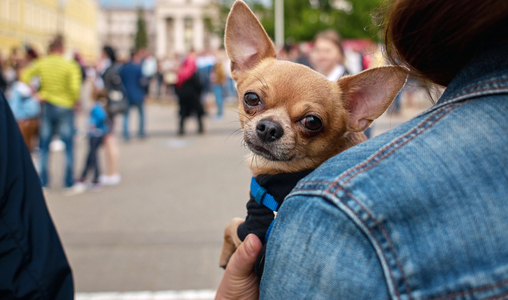
It’s always heartwarming to see an elderly person sitting on a park bench, accompanied by their loyal elderly dog. The welcome rise in human life expectancy has brought with it a concurrent rise in the life expectancy of companion dogs, especially among small breeds.

All domestic dogs are descendants of the wolf, but years of genetic nurturing and devoted care have doubled their life expectancy. The average life span of a wolf in the wild is 6-8 years and most do not die of old age. Pets, on the other hand, are immunized and given optimal nutrition. On the one hand, this prolongs life, which is good, but on the other hand, a longer life presents dog owners, veterinarians and nutritionists with the challenge of addressing the special needs of increasing numbers of geriatric dogs.

The special needs of the elderly dog include special attention to joint health, maintaining good physical condition and coping with behavioral changes that stem, among other things, from loss of self-confidence and anxiety when the body and the senses get weaker.
Any loud bang, screeching brakes or honking horn are strange and troubling sounds for any dog, but for the elderly dog, these sounds are even more stressful because these dogs are more anxious than they were in their youth. Air pollution is much more difficult for older dogs to cope with, as is maneuvering urban steps and sidewalks. If urban dogs are less active than their rural counterparts, then this holds true even more so for the aging dog.
It’s important that the owners of elderly city dogs are attentive to their special needs. It’s recommended to visit the vet every six months for a comprehensive physical exam for early detection of age-related diseases. Provide exercise as much as possible within the dog’s capabilities, and opt for food that is suited for city-dwelling senior dogs. These types of foods usually contain glucosamine and chondroitin to support worn out joints, medicinal herbs and superfoods to slow cellular oxidation (anti-aging), caloric control, and more.
Your dog will undoubtedly be there for you in your time of need or in your old age, but will you also be a loyal friend to your dog?
Adding years to your dog’s life can be a blessing. Making these years a positive experience for the two of you greatly depends on you as well.